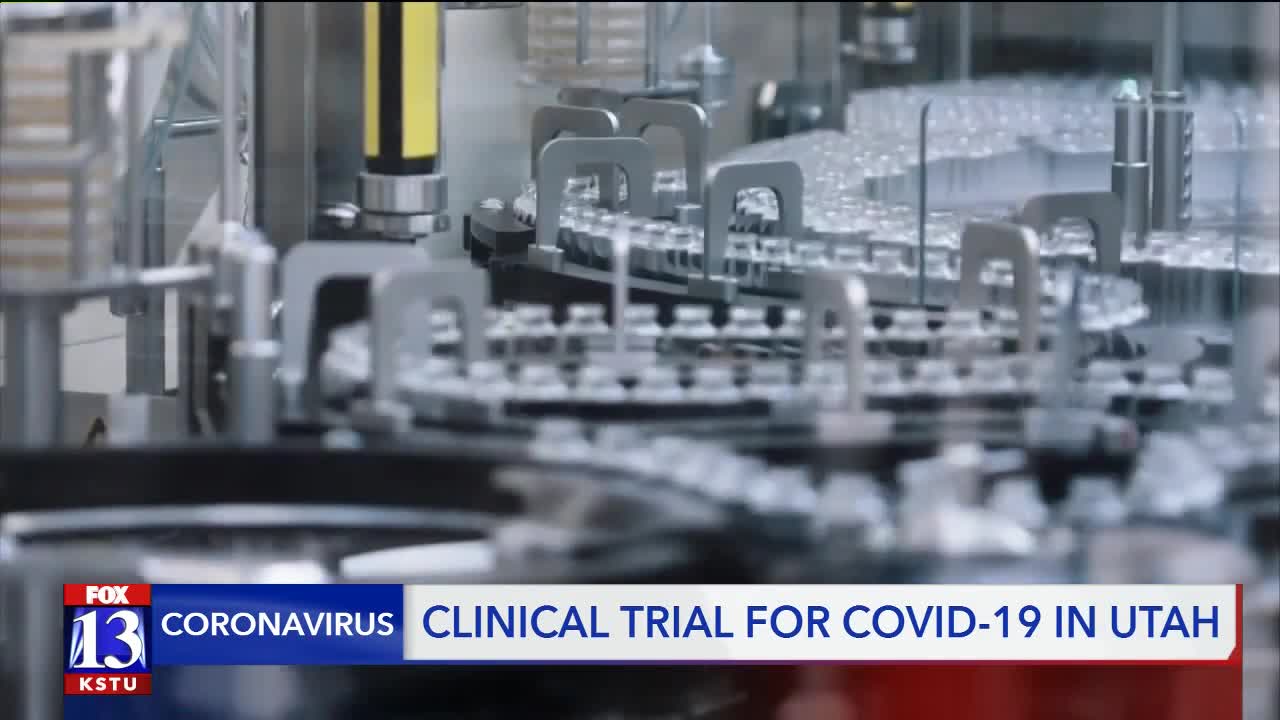SALT LAKE CITY — Researchers at Intermountain Healthcare and University of Utah Health announced two vital clinical trials to test the effectiveness and safety of hydroxychloroquine (HCQ) and azithromycin in patients with COVID-19.
While most trials can take at least a year to launch, these critical trials were formed in just two weeks’ time with support from both hospitals, the Utah Department of Health and Utah Medical Association.
“We heard the cry of distress from the community, we realize the urgency of the pandemic," said Dr. Sam Brown, Critical Care Researcher at Intermountain Healthcare.
The clinical trials are underway in efforts to learn more information and treat patients with COVID-19. Researchers will enroll 2,300 patients who tested positive for the novel coronavirus.
“The goal is to make people better," said Dr. Brown. "We use the World Health Organization 'COVID outcome scale,' at two weeks after randomization we look to see are patients improving and these are real improvements, are they getting off life support, are they getting off oxygen.”
In the first trial, a total of 300 patients will be given hydroxychloroquine or azithromycin over a five day period. The impacts of the drugs will be studied to determine if it can help save lives.
“I think it’s worth noting that these two medications are very, very commonly prescribed," said Dr. Brandon Webb, an Infectious Disease Physician at Intermountain Healthcare. "We have a very good understanding of their safety profile.”
Researchers want Utahns to know that there is enough supply of the drugs for those who rely on them for the treatment of lupus, arthritis or malaria as well as for the study.
In the second trial, outpatients with COVID-19 will be administered the drugs to determine if they prevent hospitalization.
“We’re looking at any individual (18 or older) as well as their household contacts to try and understand how hydroxychloroquine compared to a placebo may help decrease viral shedding and may help decrease household transmission,” said Dr. Rachel Hess, Co-Director for the Center for Clinical and Translational Science at University of Utah Health.
In the outpatient trial, roughly 2000 patients will be admitted. Regarding the household transmission study, approximately ten new patients can enroll daily. Both Intermountain and U of U Health have been reaching out to COVID-19 patients who test positive to let them know they may qualify.
“How quickly we have answers depends on how quickly the Utah community participates in this study," said Dr. Hess. While results can be as early as a few weeks to a few months, how Utahns work to 'flatten the curve' has a lot to do with the research.
21 “We could potentially have answers within a month," said Dr. Sam Brown. "We’re praying that we don’t because we don’t want thousands of Utahns being managed in sports arenas, on makeshift ventilators so we want the curve flat.” If the curve remains flat, it could take longer to get answers due to the lack of COVID-19 patients. Regardless, these trials have already taken up national attention from various medical boards.
“Two health systems with a state government and a community coming together is something that seen as extraordinary," said Dr. Hess. “Nationally, what’s happening in Utah as being viewed as potentially informative to the rest of the country and the rest of the world.”
To learn more about the COVID-19 Clinical Trials at Intermountain and U of U Health: https://intermountainhealthcare.org/covid19-coronavirus/clinical-trials/ and https://healthcare.utah.edu/coronavirus/


